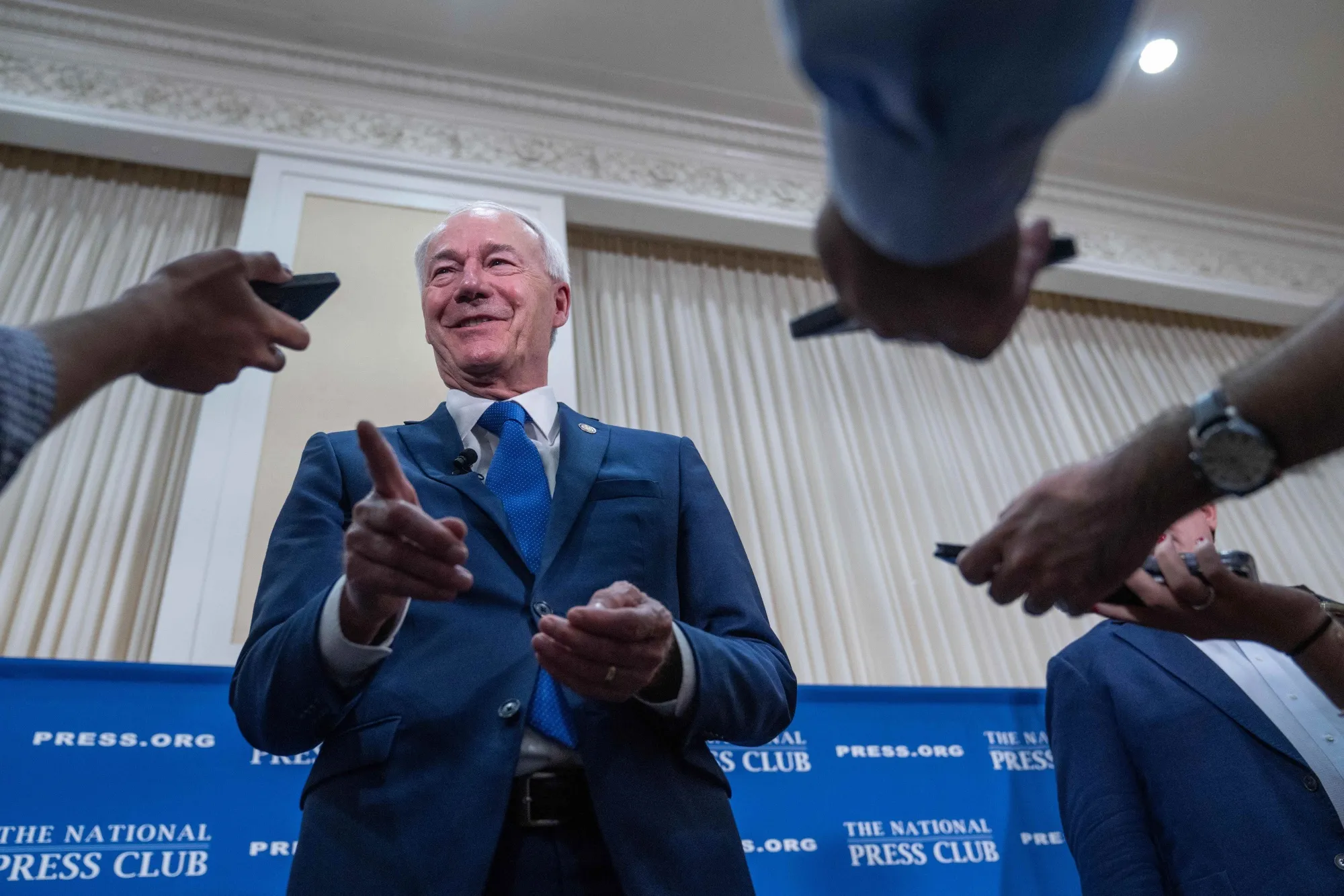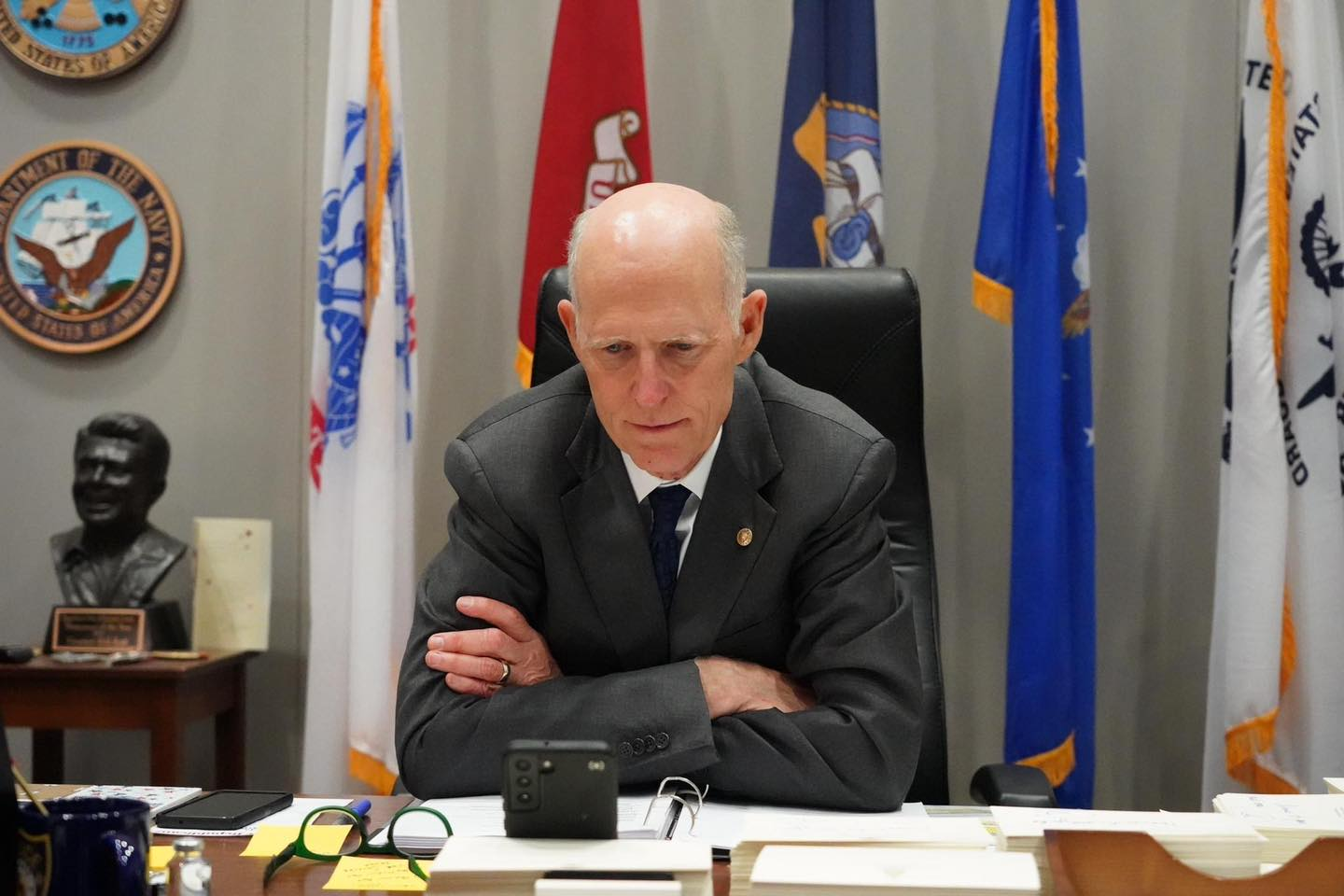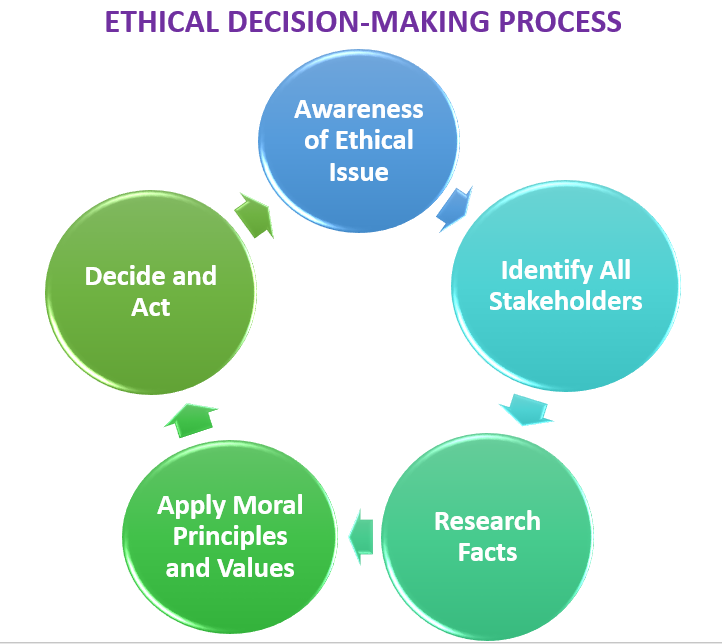The conversation around the potential firing of the Fed chairman has recently gained traction, especially considering the tumultuous relationship between President Trump and Jerome Powell. Trump’s administration has fluctuated in its support for the Federal Reserve, sparking debates about the removal of the Fed chair and what it would mean for the institution’s independence. Critics argue that the market reaction to a Fed removal could be detrimental, undermining confidence in monetary policy and economic stability. Historically, the role of the Fed chairman has been safeguarded against arbitrary dismissals, but the current political climate raises questions about traditional norms. As speculation mounts regarding the fate of Powell’s position, many investors are watching closely to see how such a significant decision might unfold.
In recent discussions, the potential ousting of the Federal Reserve’s top leader has become a hot topic, particularly in light of President Trump’s previous criticisms of Jerome Powell. The discourse surrounding the Fed chair’s termination touches upon broader themes of governmental authority and central bank independence. Many wonder about the implications of such an action on market stability, as the discussion of removing a Fed leader poses risks not just to organizational integrity, but also to public trust in fiscal policy. As financial experts analyze the dynamics at play, the question remains whether Trump’s administration can and will challenge the traditional boundaries set for Fed leadership. Undoubtedly, the anticipation of any shift in leadership prompts scrutiny from investors, analysts, and policymakers alike, signaling a pivotal moment for the future of U.S. monetary policy.
The Implications of Firing the Fed Chairman
Firing the Fed chairman, particularly someone like Jerome Powell, can have significant ramifications for the economy and financial markets. The potential removal can disrupt the previously established balance of power and independence the Federal Reserve has enjoyed, a fundamental principle for maintaining stability in the U.S. economic landscape. Moreover, the market’s reaction to such a move could be dramatic, with traders and investors reacting to the uncertainty surrounding future monetary policies. Historically, major changes in leadership at the Fed have led to fluctuations in interest rates and investor confidence, making it crucial for market players to monitor any indications of dismissal.
When President Trump hinted at possibly ousting Powell, it sent shockwaves through Wall Street, as investors feared a potential shift towards a more lenient monetary policy. The Federal Reserve’s role in controlling inflation and fostering economic growth is paramount, and a new chairperson might not prioritize those goals in the same way. This disturbance in perceived independence could lead to increased volatility in financial markets as traders reassess their strategies based on how new policies might shape future economic conditions.
Jerome Powell’s Position and Its Challenges
Jerome Powell’s tenure as Fed chairman has been marked by significant challenges, including navigating complex political pressures and economic uncertainties. Since his appointment by President Trump in 2017, Powell has faced criticism from the administration regarding interest rate policies. Trump has publicly lamented Powell’s cautious approach towards rate cuts, believing that more aggressive moves might have bolstered economic growth. Despite the political tensions, Powell has maintained the Fed’s focus on long-term economic health, underscoring the importance of stability and independence, which is critical in preserving public trust.
The fact that Trump considered the removal of his Fed chairman illustrates the underlying tensions between political motives and independent economic governance. Powell has made it clear that the decision to cut interest rates must be rooted in economic analyses rather than political influence. This stance reinforces the traditional view that key economic positions, such as the Fed chair, should not be subject to the whims of the president, maintaining essential separation to safeguard the economy’s foundation.
Market Reactions to Fed Chair Removal Risks
The concept of firing the Fed chairman raises legitimate concerns about market stability. Analysts predict that if Trump were to proceed with such an action, the immediate market reaction would likely be negative. The removal of Powell could be interpreted as a signal that the administration is willing to compromise the Fed’s independence, leading to speculation about future monetary policy direction. The likely results would be a drastic increase in market volatility, as investors reassess their confidence in the Fed’s ability to act independently of political pressures.
Moreover, the anticipation of such upheaval could spark a ripple effect throughout the economy, potentially raising interest rates on long-term bonds as investors adjust their expectations. The apprehension surrounding the ramifications of a new Fed chair who may favor more lenient monetary policies could undermine the credibility of the Fed as a reliable inflation fighter. Such market reactions underscore the delicate balance the Federal Reserve must maintain while navigating these politically charged waters.
The Legal Framework Surrounding Removal of a Fed Chair
The legal framework allowing for the removal of the Federal Reserve chairman remains a subject of considerable debate. While the Federal Reserve Act permits governors to be removed for cause, the specifics regarding the FOMC chairperson’s protections are less clear. The controversial interpretation of whether the chair’s four-year term is shielded by the ‘for cause’ provision creates a complex legal scenario in terms of presidential power. As recent Supreme Court decisions have tested the restrictions on executive power over independent agency leaders, any attempt to remove Powell could lead to a significant legal battle.
The implications of such an action stretch beyond mere legality; they reflect on the constitutional boundaries of executive authority. Many scholars note that any court involvement could shape the future of Federal Reserve independence, either reinforcing it or, conversely, granting the president broader removal powers. This ongoing legal interpretation will be critical in determining the outcomes of potential efforts by President Trump or future administrations to influence or change leadership within the Federal Reserve.
Market Uncertainty and Confidence in the Fed
Market uncertainty often stems from a lack of confidence in the leadership and decisions made by the Federal Reserve. The prospect of firing Jerome Powell, someone whom Wall Street regards with measured respect, sparks fears of instability in economic policy. If a Federal Reserve chair is perceived to be closely aligned with political agendas, investor confidence could wane, leading to adverse market reactions, such as declines in stock prices and upheaval in bond markets. Essentially, any perceived shift towards a politically influenced monetary policy could trigger a flight to safety among investors.
The challenge for any president lies in balancing the influence they exert over the Fed while recognizing the necessity of the institution’s independence. Historian and financial analysts frequently note that an independent Federal Reserve is crucial for ensuring long-term economic stability. Hence, attempts to influence or replace the Fed chairman may be viewed by the markets as an affront to this independence, leading to a broader reassessment of risk and investment strategies amidst potential economic turmoil.
The Dynamics of Federal Reserve Independence
Federal Reserve independence is a cornerstone of effective monetary policy, insulating the institution from the political machinations of the executive branch. This autonomy allows the Fed to make unbiased, data-driven decisions aimed at fostering economic stability and combating inflation. However, any move by a president, particularly one seeking to fire the Fed chairman, poses serious risks to this independence. It threatens to undermine the public’s trust in the Fed’s ability to act solely in the nation’s economic interests rather than political expediency.
The importance of keeping the Fed independent has been echoed by numerous economists and legal experts, who warn that a politically motivated removal would not only destabilize current economic conditions but could also set a dangerous precedent for future administrations. To safeguard the effective functioning of the Fed, it is imperative that both Congress and market participants advocate for the preservation of its independence, ensuring that monetary policy remains insulated from short-term political pressures.
Potential Legal Challenges in the Wake of Chairman Removal
In the event that President Trump attempted to remove Jerome Powell, the legal ramifications would undoubtedly be significant. Many experts believe that a swift court challenge would ensue, citing the provisions of the Federal Reserve Act concerning the removal of governors for cause. The potential involvement of the Supreme Court could establish new precedents defining the extent of presidential authority over independent agencies. Observers have noted that this could fundamentally reshape how the executive interacts with entities like the Fed.
Such legal challenges would not only stall any immediate action but would also spotlight the ongoing tension between the independence of financial institutions and the authority of the presidency. As the Supreme Court has shown increasing willingness to expand executive powers, the outcome of any litigation involving a Fed chair’s removal could have widespread implications for governance and agency operations across the board.
Long-Term Impacts of Fed Chair Removal on Financial Policies
The long-term impacts of firing the Fed chairman can reverberate through national and global economic policies. Such a move could influence the Fed’s approach to interest rates, monetary supply, and fiscal responsibility, potentially altering the financial landscape for years to come. If markets perceive a gradual loss of autonomy and integrity within the Federal Reserve, the broader economic environment might shift towards increased volatility, something that could stifle growth and innovation.
Moreover, if President Trump or subsequent administrations manage to appoint Fed chairs that align more closely with their economic views, the foundational principles underpinning the central bank’s operations may shift, emphasizing short-term growth over long-term stability. This could lead to a cycle of market instability as participants react to shifting policies driven by political considerations rather than pragmatic economic assessments.
Conclusion: The Future of the Federal Reserve and Its Leadership
The future of the Federal Reserve and the potential for a change in leadership remains a focal point for economists, shareholders, and the general public. The continued safety of the Fed’s independence is critical to ensuring that monetary policy can serve as a stabilizing force in an ever-changing political and economic environment. As markets remain alert to the potential for a presidential removal of the Fed chairman, understanding the implications of such actions becomes increasingly crucial.
Ultimately, the interactions between the president, the markets, and the Federal Reserve will shape the trajectory of U.S. economic policy. Any efforts to influence or dismiss the Fed chairman must be approached cautiously, given the strong legal and market implications that accompany such decisions. As investors remain watchful, the current landscape underscores the importance of upholding the Federal Reserve’s independence to foster a robust and reliable economic future.
Frequently Asked Questions
Can Trump fire the Fed chairman, Jerome Powell?
Legally, the president can remove the Fed chairman, but it must be for cause, according to the Federal Reserve Act. This has sparked debates about whether Trump’s dissatisfaction with Powell’s monetary policies would constitute valid grounds for firing him. However, many analysts suggest that removing the Fed chair could significantly undermine the Federal Reserve’s independence.
What are the potential market reactions to the firing of the Fed chairman?
Market reactions to the firing of Jerome Powell could be severe, as investors fear that the removal would lead to a more accommodative monetary policy. This fear may drive long-term interest rates higher and erode confidence in the Fed’s ability to manage inflation effectively.
What does the removal of the Fed chair mean for Federal Reserve independence?
Removing the Fed chair could jeopardize the Federal Reserve’s independence, leading to concerns that future monetary policy could be swayed by political pressures rather than economic fundamentals. This would have lasting implications for how the Fed operates and is perceived by the markets.
Is the removal or firing of the Fed chairman legally justified?
The legal landscape surrounding the removal of the Fed chairman is complex. The Federal Reserve Act allows for removal ‘for cause’, yet the interpretation of what constitutes ’cause’ and whether the Supreme Court would support a presidential removal remains uncertain.
What might happen if Trump were to pursue the removal of Jerome Powell?
If Trump were to pursue the removal of Jerome Powell, it could provoke a significant market upheaval, as investors might interpret such a move as an intent to change monetary policy drastically. This could lead to increased volatility and a potential loss of faith in the Fed’s independence.
What would firing the Fed chairman mean for inflation targets?
Firing the Fed chairman, like Jerome Powell, could lead to shifts in monetary policy that affect the Fed’s ability to maintain its inflation target of around 2%. Markets typically prefer a Fed that prioritizes inflation control, so changes in leadership could raise concerns about inflation and interest rates.
How does Jerome Powell’s position affect interest rates?
Jerome Powell’s position as Fed chairman has significant implications for interest rates. His policy decisions, aligned with keeping inflation stable, influence short-term and long-term interest rates, which drive investment decisions across the economy.
What challenges does Jerome Powell face amid calls for his removal?
Jerome Powell faces challenges balancing economic growth with inflation control while navigating potential political pressures, particularly from Trump. His leadership and choices are scrutinized, especially in a landscape where removal could threaten Fed independence.
Would replacing Jerome Powell calm market fears?
Replacing Jerome Powell could potentially calm some market fears if the new chair embodies stability and confidence. However, the act of removing Powell itself would likely trigger negative perceptions about the Fed’s commitment to independence and sound monetary policy.
What precedent exists regarding presidential removal of Fed chairs?
Historically, attempts by presidents to remove Fed chairs have been rare and often met with substantial legal and market backlash. This underscores the tension between political authority and the Federal Reserve’s mandate for monetary policy independence.
| Key Point | Explanation |
|---|---|
| Trump’s Relationship with Powell | President Trump has had a contentious relationship with Fed Chair Jerome Powell, blaming him for not being aggressive enough in cutting interest rates. |
| Possibility of Firing Powell | While the president may suggest firing Powell, legal experts indicate that such an action could challenge the Fed’s independence. |
| Market Reactions | Reports speculate that firing Powell could severely disrupt financial markets and diminish trust in the Federal Reserve, leading to increased rates. |
| Legal Challenges | The Federal Reserve Act allows for the removal of governors ‘for cause,’ but it’s debated whether this extends to the FOMC chair. |
| Supreme Court’s Role | Legal perspectives vary on whether the Supreme Court would support a presidential move to remove Powell, which may depend on recent rulings about executive authority. |
| Implications for Fiscal Policy | Firing the Fed chair could signal intentions for looser monetary policies that may not align with long-term economic stability, heightening market fears. |
| Chair’s Authority | The Fed chair plays a critical role but cannot unilaterally dictate policy without consensus from the FOMC. |
| Succession Impact | The identity of a successor may not alleviate market concerns if the act of firing Powell signals a shift toward more accommodating monetary policies. |
Summary
Firing the Fed chairman has significant implications for the financial sector and economic policy. While President Trump has considered removing Jerome Powell, analysts have cautioned that such an action could destabilize markets and undermine the Federal Reserve’s independence. Legal opinions diverge on the president’s authority to dismiss the chair, and the potential market reactions suggest that maintaining consistency in monetary policy is crucial for economic stability. In summary, the question of whether a president can fire the Fed chairman ultimately encompasses legal complexities and broader economic repercussions.



